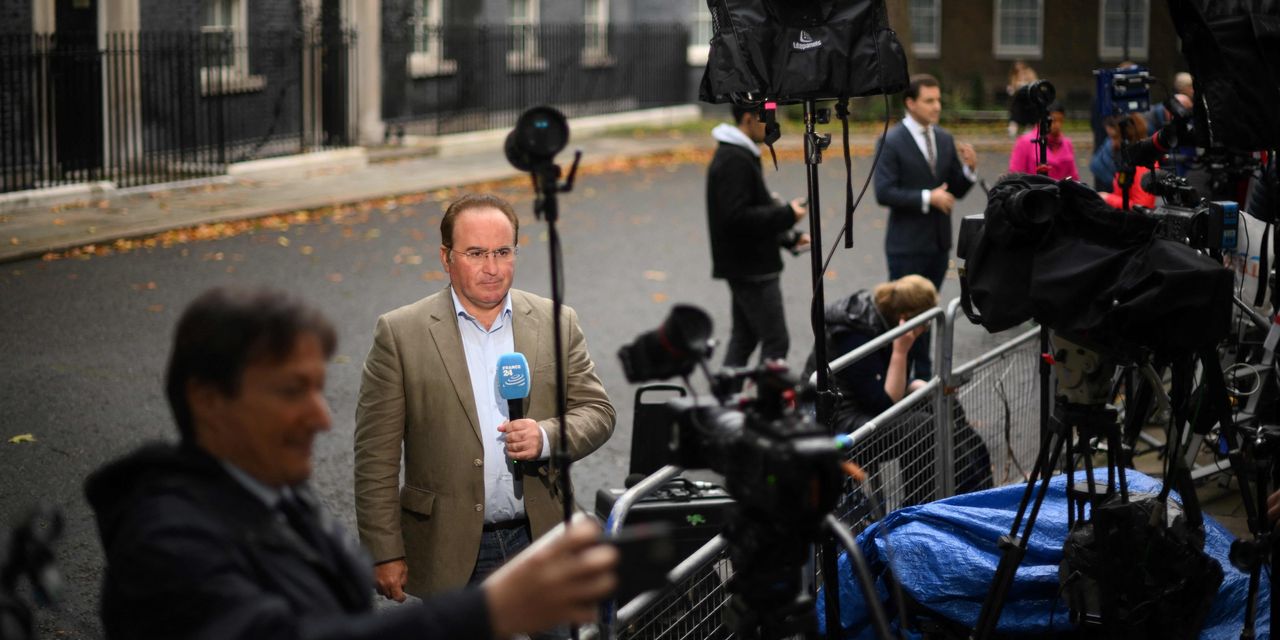U.K. bond yields rose while the British pound fell on Friday, reflecting both the political turmoil as well as the state of the underlying economy as retail sales fell by more than forecast.
The pound
GBPUSD,
slumped to $1.1123 from $1.1239 on Thursday.
The yield on the 10-year gilt
TMBMKGB-10Y,
rose 11 basis points to 4.02%. Yields move in the opposite direction to prices.
A day after Prime Minister Liz Truss announced her resignation, there are still no formal candidates to take over in a week’s time. There’s the possibility that former Prime Minister Boris Johnson may return, though betting markets put former Chancellor Rishi Sunak as the favorite. A candidate will need the support of 100 Conservative lawmakers by Monday to be eligible to participate in the party election.
“Currently the outlook for the U.K. economy is extremely uncertain,” said Ellie Henderson, an economist at Investec Securities. She noted that it’s not clear whether the u-turns in tax policy announced by the new Chancellor of the Exchequer Jeremy Hunt will be adhered to under yet another government.
The medium-term fiscal plan, and accompanying Office for Budget Responsibility forecast, are set for three days after the new prime minister is announced. “There have been suggestions that given the leadership contest this plan could be delayed. Markets are searching for reassurances on the sustainability of the public finances and so any delay to this plan could cause further market volatility,” she said.
A Downing Street spokeswoman said it will be up to the next prime minister as to whether the fiscal statement will come on Oct. 31, though the government is planning for that, according to Sky News.
The U.K. also recorded a sharper-than-forecast 1.4% drop in retail sales in September, which in part was weighed by the state funeral for Queen Elizabeth II. “This comes at a time when soaring energy costs are forcing consumers to cut back on discretionary spending,” said economist at Nomura led by George Moran. The government deficit also was wider than expected in September.
